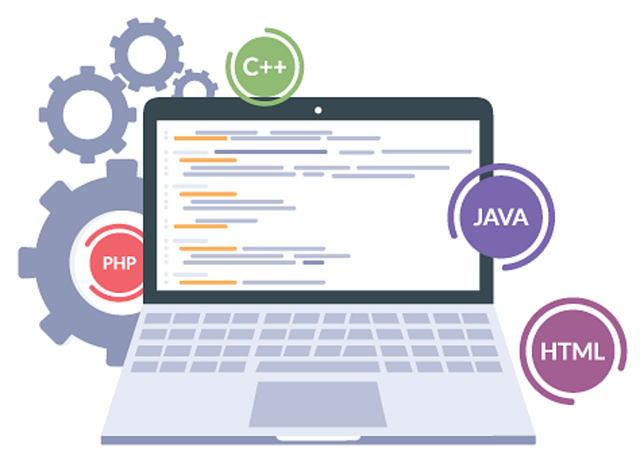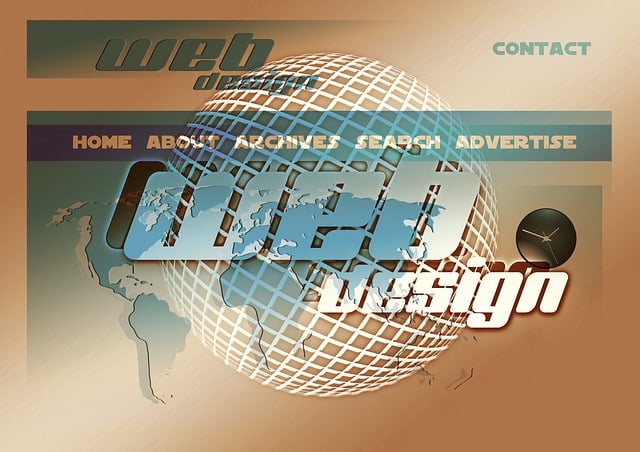Full-service web design is a comprehensive strategy involving designers, developers, and marketing specialists to create and maintain online platforms. It optimizes every aspect of a website—from UI/UX to technical infrastructure and content management—to meet business goals. By combining aesthetics, functionality, and SEO strategies, it attracts visitors, improves conversion rates, and boosts online visibility through keyword research, on-page optimization, and structured data markup. Effective full-service web design creates visually stunning, user-centric interfaces, leverages modern technologies for responsiveness and security, and drives business growth in the digital era.
In today’s digital landscape, a robust online presence is non-negotiable for businesses aiming to thrive. This article delves into the multifaceted world of full-service web design, development, and search engine optimization (SEO), exploring each critical component. From understanding the comprehensive nature of full-service web design to implementing effective SEO strategies, we’ll navigate the key elements driving online success. Discover how skilled web designers and developers create dynamic websites while optimizing for search engines, ensuring your business stands out in the digital crowd.
Understanding Full-Service Web Design: Unlocking Comprehensive Online Presence

Full-service web design offers a comprehensive approach to building and maintaining an online presence, encompassing all aspects from initial concept to ongoing optimization. It involves a collaborative process between designers, developers, and marketing specialists who work together to create not just visually appealing websites but also highly functional and search engine optimized (SEO) platforms. This holistic strategy ensures that every element of the website—from its user interface (UI) design and user experience (UX) flow to technical infrastructure and content management—is tailored to achieve specific business objectives.
By leveraging full-service web design, businesses can unlock a seamless digital experience for their users while maximizing their online visibility. Skilled professionals in this field understand the intricate interplay between aesthetics, usability, and SEO, ensuring that websites not only attract visitors but also convert them into customers or followers. This includes implementing strategic keyword research, on-page optimization techniques, and structured data markup to enhance search engine rankings, ultimately driving more organic traffic to the site.
The Role of Web Designers and Developers in Creating Dynamic Websites

Web designers and developers play a pivotal role in bringing ideas to life through dynamic website creation. A full-service web design approach involves a collaborative effort between creative professionals who focus on aesthetics, usability, and functionality. They transform client visions into visually appealing and user-friendly interfaces, ensuring a seamless digital experience for visitors.
The development side of this process requires technical expertise in coding, database management, and content implementation. Developers build the backbone of the website, integrating design elements with robust functionality. They employ modern technologies and frameworks to create responsive, fast-loading, and secure websites that can adapt to various devices and screen sizes. This dynamic approach positions web designers and developers as key contributors to successful online businesses, setting the stage for effective digital marketing strategies.
Key Components of Effective Web Design: Aesthetics Meets Functionality

In the realm of full-service web design, the key lies in seamlessly merging aesthetics with functionality. A visually appealing website is a crucial first step, capturing users’ attention and fostering engagement. However, mere beauty isn’t enough; the site must be intuitive, easy to navigate, and optimized for various devices. Balancing attractive design elements like compelling visuals, clean layouts, and harmonious color schemes with robust functionality, such as speedy loading times, responsive behavior, and user-friendly interfaces, ensures a delightful user experience.
Effective web design also considers search engine optimization (SEO) principles. Integrating intuitive navigation, relevant content, and strategic keyword usage not only enhances discoverability on search engines but also aligns with modern users’ expectations of instant access to information. Thus, a well-designed website that prioritizes both visual appeal and functionality stands out in the digital landscape, captivating audiences and driving business growth.
Search Engine Optimization (SEO): Maximizing Online Visibility

Search Engine Optimization (SEO) is a pivotal strategy for any business aiming to maximize its online visibility and attract organic traffic. In the competitive digital landscape, it’s crucial for websites to rank highly on search engine results pages (SERPs). A full-service web design agency understands this need and employs SEO techniques from the outset of project development. By integrating keywords strategically throughout a website’s content, meta tags, and structure, they ensure search engines can easily index and understand the site’s purpose. This, in turn, boosts its position in relevant searches.
Effective SEO goes beyond just keyword placement. It involves conducting thorough keyword research to identify terms potential customers are using when searching for products or services. A full-service web design approach also includes optimizing website speed, mobile responsiveness, and user experience. These factors not only enhance the site’s appeal to visitors but also signal to search engines that the website is of high quality and value, further improving its visibility and ranking over time.
On-Page SEO Strategies to Boost Your Website's Ranking

Implementing on-page SEO strategies is a crucial step for any website aiming to climb the ranks and gain visibility in search engine results pages (SERPs). As a full-service web design and development agency, we understand the significance of optimizing individual web pages to drive organic traffic. This involves conducting thorough keyword research to identify relevant terms your target audience uses when searching for products or services similar to yours. By strategically placing these keywords within your content, meta tags, and headings, you enhance the likelihood of search engines recognizing your website as a valuable resource for specific queries.
Additionally, creating high-quality, engaging content is paramount. This includes optimizing titles, descriptions, and URLs, ensuring they are not only keyword-rich but also enticing to potential visitors. Proper image optimization with alt tags and compressing media files can further improve page load times, which search engines favor. Regularly updating content and ensuring it remains fresh and relevant is another effective on-page tactic. These strategies, when implemented correctly, lay a solid foundation for improved SEO performance, ultimately driving more qualified leads and increased website traffic.
Content Creation and Keyword Research for SEO Excellence

Creating compelling content is a cornerstone of any successful digital strategy, especially for achieving SEO excellence with a full-service web design approach. At its core, effective content generation involves understanding your target audience’s needs and preferences while aligning your website’s material with relevant search terms. By integrating keywords naturally into well-crafted copy, blog posts, articles, and product descriptions, you enhance the site’s visibility in search engine results. This process requires a deep dive into keyword research to identify high-value phrases that potential customers use when seeking products or services similar to yours.
Tools like Google Keyword Planner and SEMrush can assist in this endeavor by revealing search volume, competition, and related keywords. Once identified, these keywords should be strategically incorporated into meta titles, headings, URL structures, and image alt tags. This holistic content optimization strategy ensures your website not only ranks higher but also delivers valuable information that resonates with users, ultimately driving engagement and conversions.
Technical SEO: Ensuring Your Website is Search Engine Ready

In the realm of digital presence, a full-service web design isn’t just about aesthetics; it’s about laying the foundational infrastructure for effective Technical SEO. This involves ensuring your website is optimized for search engines like Google, making it easily discoverable and accessible to potential visitors. A strategic approach includes implementing structured data markup to help search engines understand your content better, resulting in improved rich snippets and higher click-through rates. Additionally, optimizing site speed is paramount; fast-loading pages enhance user experience while boosting your website’s ranking signals.
Further, a meticulous focus on mobile optimization is crucial given the predominant use of smartphones for web browsing. A responsive design that adapts seamlessly across devices not only meets user expectations but also reinforces your website’s credibility in the eyes of search engines. Moreover, regular technical audits and updates are essential to address issues like broken links, crawl errors, and duplicate content, ensuring your site remains a reliable and valuable resource, both for users and search algorithms alike.
Link Building and Its Impact on SEO Performance

Link building is a strategic process that plays a pivotal role in enhancing a website’s visibility and improving SEO performance, especially for a full-service web design agency catering to diverse client needs. By acquiring high-quality backlinks from reputable sources, a website gains authority in its niche, which is a key factor in how search engines rank pages. These backlinks act as digital votes of confidence, signaling to search engines that the content is valuable and trustworthy. This process involves identifying relevant websites, creating compelling content that naturally attracts links, and engaging in outreach to secure these valuable connections.
Effective link building strategies can significantly impact a website’s ranking on search engine results pages (SERPs). When a well-designed and developed site, created by a full-service web design team, earns backlinks from authoritative sources like industry leaders, news publications, or influential blogs, it signals to Google and other search engines that the site offers valuable information. This can lead to increased organic traffic, improved user experience, and ultimately, better SEO performance.
Measuring Success: Analyzing Web Design and SEO Results

Measuring success is a critical aspect of evaluating any digital project, and web design and SEO are no exceptions. A full-service web design agency will often track key performance indicators (KPIs) to gauge the effectiveness of their efforts. These metrics could include website traffic, bounce rate, time on site, conversion rates, and more. By analyzing these data points, designers and developers can pinpoint areas where improvements are needed, whether it’s refining the user experience, enhancing page speed, or optimizing content for search engines.
Regular analysis allows for data-driven decisions, ensuring that the website remains competitive in a dynamic digital landscape. SEO strategies, particularly those focused on organic growth, require consistent monitoring to stay aligned with ever-changing algorithm updates. Through comprehensive analytics, professionals can adapt their approach, targeting specific keywords, optimizing meta tags, and creating high-quality content that resonates with both users and search engines.
